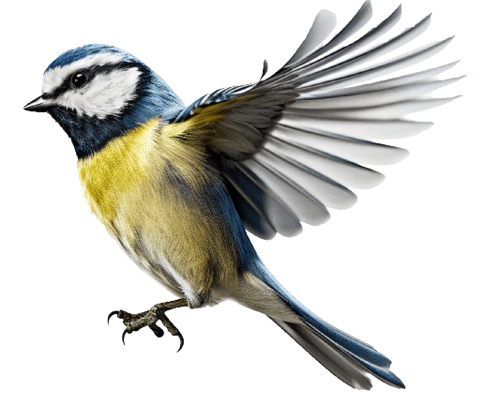Some of you may have heard about a disease that has killed many birds throughout eastern parts of the USA. Young birds seem to be the most susceptible. The species most affected were Grackles, European Startings, Blue Jays and American Robins. This was first reported in Washington DC, and spread to states as far south as Georgia and west to Kentucky, Indiana and Ohio. The most noticeable symptoms include crusty eyes and tremor-like conditions.
Ecologists throughout the country have been trying to determine the cause, but as of yet have no definitive answers. West Nile, salmonella and bird influenza have been ruled out.

One of the recent things they are looking at is the Brood X Cicadas. Before Brood X Cicadas emerge they live underground for a period of 17 years, hence the name Brood X, and are therefore exposed to high levels of pesticides. Cicadas normally peak in the late summer, but Brood X Cicadas emerge in May and early June. This has not been confirmed as the cause as there are many pathogens to consider, and it takes time to determine which one is contributing to this particular disease.
There are small actions we as bird lovers can take to prevent illness and keep birds safe. Here are some tips to follow:
- Most important, keep your feeders and bird baths clean. During the warm summer months feeders should be cleaned weekly with a solution of 10% bleach and hot water. The same should be done with your birdbaths.
- Vinegar can also be used if you prefer.
- Air dry feeders completely before refilling.
- Discard any seed that has become wet, that might go moldy.
- Clean away seed shells that have accumulated under your feeder and discard.
- Move feeders around every 2 weeks to avoid build up of bird droppings under feeders.
- In the spring and summer, switch to using cylindrical feeders that don’t permit droppings to mix with seed. This can occur in hopper and platform feeders. If you choose to use hopper or platform feeders, clean thoroughly on a weekly basis.
By following these recommendations we can help bird populations stay healthy and happy.
If you do notice any dead birds with conditions mentioned in this article, please wear disposable gloves and place them in sealed ziplock bags to discard. We also recommend reporting this to your local veterinarian and Bird Studies Canada. Keep pets and children away for their own safety.
Let’s keep our birds safe!
Jane Paradis





